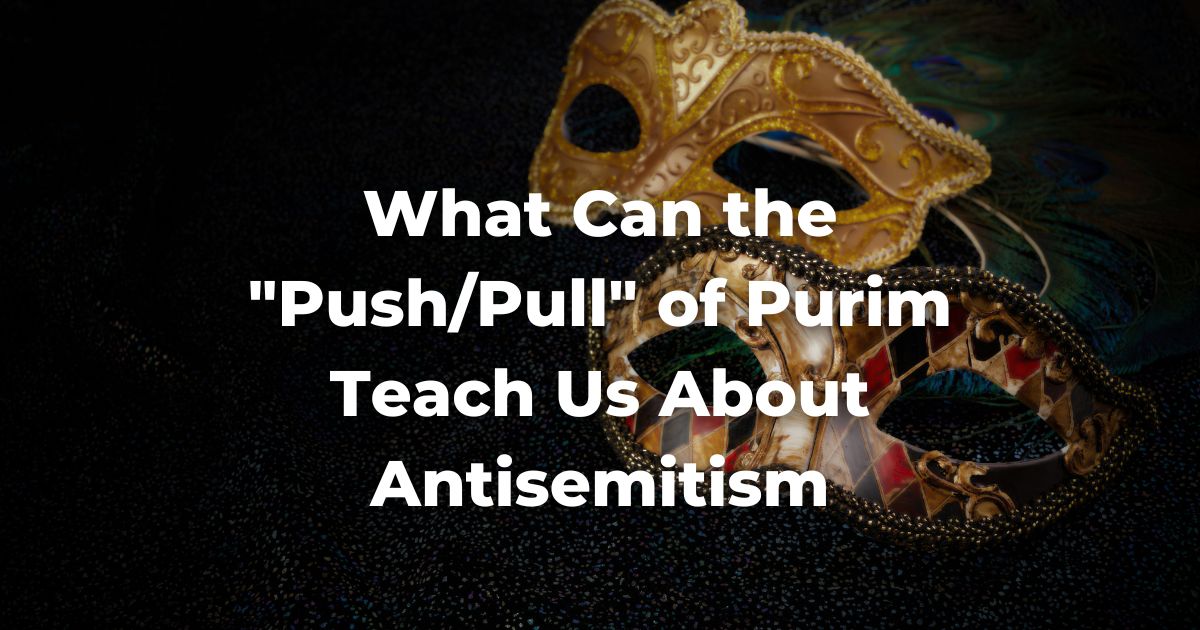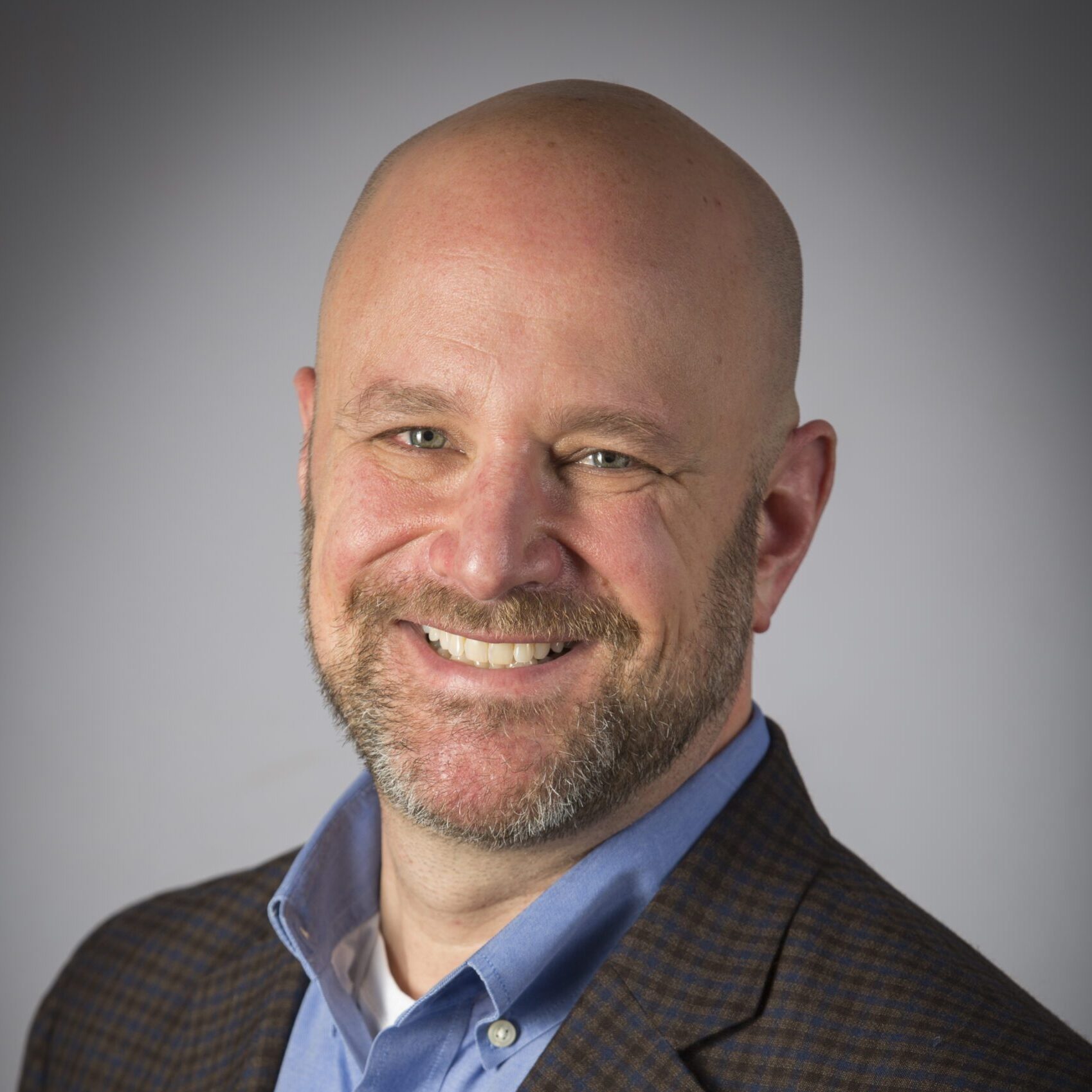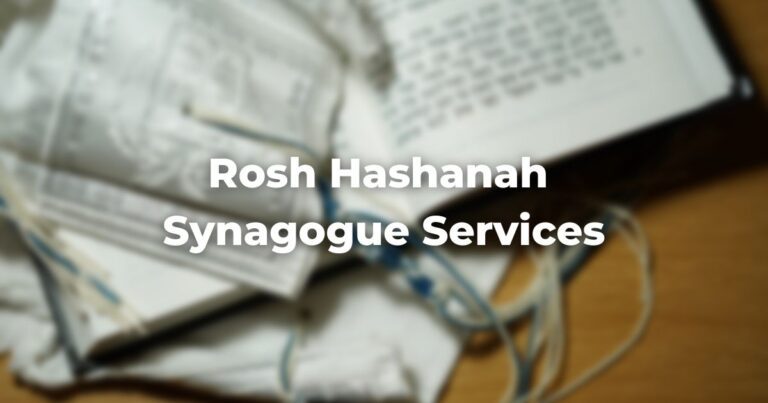In marketing, we call it a push/pull strategy. The “push” is sending out a message and hoping it resonates enough to achieve a stated goal; the “pull” is drawing people in toward that objective with content that is pleasing.
And in the story of Purim, which we’ve just finished reading and which is course playing itself out today in a very modern way, we find both.
The objective in this case is fighting antisemitism.
Years ago, after a long of absence of formally observing or feeling connected to my Judaism, I showed up—bleary eyed after a long day of work and commuting—to my shul’s Purim celebration. I was really only there to help escort my kids through the chaotic maze of games and activities, but this became more than a Purim carnival. It was Sponge Bob and Spiderman, a DJ with thumping speakers, the clackekty-clacks of a carnival wheel and a delightfully gross paste of popcorn and cotton candy smeared across my kids’ faces.
The Megillah reading that night was a parade of familiar faces in rock star costumes. Elvis and Tina Turner in the house!
I remember wishing in that moment that my non-Jewish friends could see how we really put it together for this holiday.
The Purim story that we tell, of course, is of an existential threat to the Jews and so this year, the real-world punches through our frivolity. In our efforts to fight antisemitism, we see a lot these days on the “push” front. A tremendous television advertising campaign—including a spot during the Superbowl—to stop antisemitism. Slogans and symbols on billboards and worn on pins and bracelets and clothing. Thank goodness for the funding and creativity of those who—just as Esther did—are pleading for the safety of the Jews.
I wonder if the pull could also be more effective.
As the story of Purim unfolds, King Ahasuerus remembers that Mordechai had earlier saved his life. And that was the turning point.
A great theme of the Purim holiday is to give gifts—to each other and the poor. In a recent D’var TorahRefers to the first five books of the Hebrew Bible, the Tanakh, also called the Five Books of Moses, Pentateuch or the Hebrew equivalent, Humash. This is also called the Written Torah. The term may also refer to teachings that expound on Jewish tradition. Read more, our rabbi talked also about the gift of kindness—everyday acts of extra politeness and generosity and respect toward restaurant servers, ride-share drivers, co-workers, neighbors, and friends—those non-Jews with whom we interact on a daily basis.
Maybe it’s not enough to tell people: “Don’t hate the Jews because it’s wrong to do so.” (The push)
We have to remind those not in the Jewish community that we are good people, with values, “menschlichkeit,” kindness in our hearts, humor and humility in our nature and a desire for peace in our souls. (The pull)
We could of course recite they myriad contributions of Jewish people to culture and society. Though for many that would fall on deaf ears.
Better, perhaps, to think of oneself as the contributor by ensuring that every interaction, particularly with those who are not Jewish, is kind, devoid of the potential reinforcing of stereotypes, cooperative, and helpful. There is so much in our world that we cannot control; we can control how people feel about us as individuals.
Sounds simplistic. Maybe even naïve.
And yet antisemitic events rise in number, visibility, and the amount of pain they can inflict—particularly since October 7. They demonstrate the urgent need to do more, to push—and to pull.
Author
-

David Harrison teaches public speaking and communications skills for those who are in leadership positions—clergy and lay leaders—and those who aspire to lead. David is the past president of Beth El Congregation in Baltimore, a 1,500+ family conservative shul. He is also the owner of Harrison Communications, a public relations consultancy that specializes in working with professional associations and non-profits. His career began in journalism, as a reporter for several local and national publications.
View all posts






